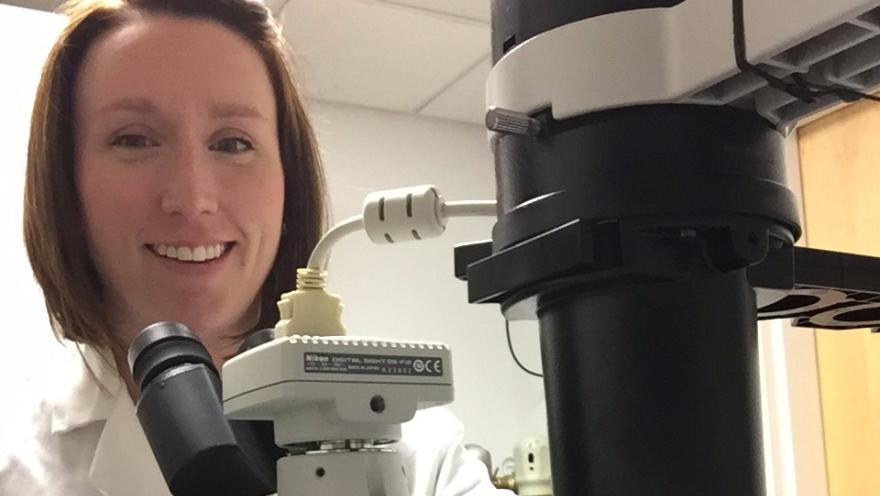The Association is pleased to continue on the tradition of supporting bright, young scientists in ALS research through the Milton Safenowitz Postdoctoral Fellowship Program. This year, we are supporting six new postdoctoral fellows out of a highly competitive applicant pool. In this series, we highlight the dedication and unique contribution each fellow makes to ALS research. Today, we feature Dr. Amanda Gleixner from the University of Pittsburgh.
The Milton Safenowitz Postdoctoral Research Program, falls under our TREAT ALSTM Global Research Program and was founded by the Safenowitz family through the Greater New York Chapter of The Association. Mr. Safenowitz died of ALS in 1998 and the family and chapter continues its support to this day. Each award is for $100,000 over a two year period.
These awards are designed to encourage and facilitate promising young scientists to enter the ALS field and most importantly, to remain. Lending to the success of our program, over 90 percent of our postdoctoral fellows go on to start their own ALS research laboratories and then mentor their own young scientists.
Here we highlight each of our postdoctoral fellows awarded in 2016 in a series to learn more about their exciting studies and get to know the person behind the bench. Our final featured fellow is Dr. Amanda Gleixner who is exploring how trafficking of molecules between the cell’s nucleus and surrounding cytoplasm contributes to C9orf72-associated ALS.
Amanda Gleixner, Ph.D.
Mentor: Christopher Donnelly, Ph.D., University of Pittsburgh, Pittsburgh, Pa.
Project: Linking impaired nucleocytoplasmic trafficking in C9orf72 ALS to altered nuclear pore complex O-linked N-acetylglucosamine (O-GlcNAc) posttranslational modifications
What is the impact of your research?
Intracellular transport has been shown to be compromised in the most common ALS genetic type. My studies seek to identify what drives the transport deficits in this and perhaps other types of ALS. By further characterizing what is impaired in ALS cells, we hope that new drugs can be designed to halt or reverse disease progression.
Why do you love working in ALS research?
I have found that those impacted by ALS are often highly engaged in the ongoing research efforts. This, in turn, motivates me to better our understanding of the disease so that one day we see ALS as a curable diagnosis.
Tell me something unique about yourself.
While growing up, I enjoyed swimming and dancing competitively.
Who are your heroes?
To me, heroes are people, such as parents, caregivers and police officers, who selflessly put the well-being and safety of others before their own needs.
Amanda’s project was generously supported by the Greater Philadelphia Chapter. Tune in to our blog next month for an in depth interview with Dr. Gleixner.
Read more about her project here.
Read more about this year’s postdoctoral class here in our press release.


Join the conversation. Please comment below.